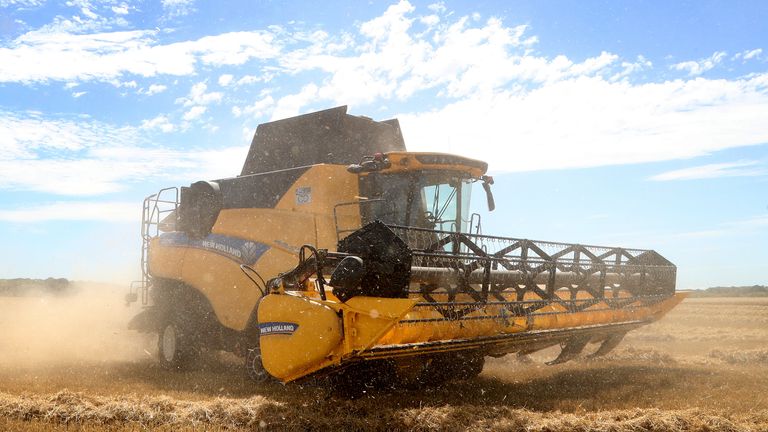Prehistoric plant DNA is being dug up from deep below the Arctic to see if it can help modern-day crops cope with the effects of climate change.
Researchers from Heriot-Watt University in Edinburgh are working with European scientists to analyse microbes from the palaeolithic period, when, like today, the planet was becoming warmer.
The university team has been awarded £500,000 by Horizon Europe, a European Union scientific research initiative, to spend four years examining ancient soil samples extracted from deep below the Arctic under a project named Tolerate.
Dr Ross Alexander, a plant molecular biologist at Heriot-Watt, said researchers were “using samples from the palaeolithic period, around 100-200,000 years ago, because the planet was warming then, much like now”.
The aim, he said, was “to find out whether the plants, soil and bacteria of the past can help our current crops survive in a rapidly changing planet”.
He said: “Drought is a particular concern for crops around the world.
“According to the latest report of the European Drought Observatory, 47% of the EU is in warning conditions and 17% is in alert conditions. Cereal yields are decreasing by as much as 10% in some areas.”
The Heriot-Watt team will test samples taken by scientists at the Alfred Wegener Institute in Germany, to see if the ancient DNA can help present-day bacteria support plants when water is scarce.
Dr Alexander said: “Bacteria play a huge role in plant health. They release compounds that might help plants retain moisture around the roots, act like glue to help maintain the soil or help the plants take up the nutrition they need.
“We’ll be using above-ground controlled growth chambers to see if we can use the bacteria to drought-proof barley, one of Scotland’s biggest crops.”
Professor Stephen Euston, an expert in food chemistry at Heriot-Watt, said: “We’re in touch with farmers and landowners across Scotland to source soil samples.
“Agricultural systems in the UK and worldwide are facing multiple stresses, including climate change, pressure for land for housing and population increases.
“If we could grow food crops like barley on marginal land that’s currently unsuitable for agriculture because of issues like drought, there would be huge economic and social benefits.
“Additionally, the molecules these bacteria produce to help improve soil and water availability to crops could have valuable uses elsewhere.
“We are working towards producing large enough quantities of these molecules to be tested in biomedical and industrial cleaning applications, for example.
“Having access to these ancient samples is an incredible bonus. There could be a huge wealth of biological resources that we could tap into to improve our current and future environment in Scotland and around the world.”



























